Recently my mind’s rivers have run dry, which feels like the end of the world when you’re a writer—especially one who works for the finest student newspaper in the Western hemisphere. When I encounter a block, I have three choices: declare my creativity compromised to a permanent end, pester Mr. Higgins for an idea, or hunt for scraps of inspiration in my Google Drive. Pursuing that latter option, I unearthed an abandoned draft from February 2023 called Zooropa: Disturbing Dystopia for the Internet Age.
Now, two years later, feels like the right time to complete it. After all, Bill Flanagan’s biography U2 at the End of the World turns 30 this year. Flanagan follows U2 through their early 90s output, which consists of two albums, Achtung Baby (1991) and Zooropa (1993), as well as a tour, ZOOTV. This is my favorite era of my favorite band, but I never cared much about it until I read this book.
Plus, Zooropa’s like that old draft: largely forgotten by time. It lives in the shadow of Achtung Baby, which is rightfully crowned U2’s magnum opus (1). If you venture into that shadow, you find a strange, experimental, post-apocalyptic world with an unsettling prescience that’s worth dragging into the light.
——
Let’s first set the scene. It’s 1991, and U2’s gone quiet ever since tasting critical failure for the first time. With their 1988 album Rattle and Hum, an exploration of blues and Americana, commentators felt the band was trying to insert themselves into the pantheon of historic rock artists rather than honor them. But it was the accompanying documentary of the same name that earned the band the reputation of intense, pretentious preachers devoid of self-awareness.
During one of the final shows of the Rattle and Hum tour, lead singer Bono told a hometown crowd, “This is the end of something for U2. It’s no big deal; we just have to go away for a while and dream it all up again.”
Ten months later, a single called The Fly burst into the world with a singular mission: reinvention. The band experimented heavily with electronica, a genre that was blossoming in the British Isles. In the music video, U2 shed their solemn personas for ones dripping with irony and cynicism. Through the thick distortion appeared the song’s namesake.
The Fly is Bono’s alter ego, a parody of sleazy rock frontmen and all their worst traits. His thesis: Yes, the rock star is a hypocrite and a god. The Fly was mischievous and unbothered, a proud sinner who loved the temperatures in hell. He seized his pious predecessor and stuck cigarettes between his lips, covered his earnest eyes with dark, alien-looking glasses. That other guy was way too desperate in his quest to form a connection with the audience. The Fly just wanted their money and veneration, and in exchange they got their hit of entertainment.
On November 21, 1991, Achtung Baby was born.
Achtung Baby is an album rooted in division and unity. The band created it in the midst of almost breaking up. The themes are majorly inspired by the divorce of their guitarist, The Edge. It was recorded in Berlin, right as the wall was falling down. The once-divided European countries were reunifying, but a resurgence of nationalism simmered beneath communism’s grave. Mass media, which made the globe hyperconnected, arrived just in time for the Gulf War. In the studio, “Bono sat at the TV transfixed, amazed that CNN was broadcasting the war live 24 hours a day, and that he—like millions of TV viewers—found himself watching war as if it were a football match,” Flanagan writes. “He turned on a movie, switched to the war for a while, over to MTV, back to the war.”
Sound familiar? A marvel for people in 1991, Tuesday for all of us in 2025.
Flanagan continued, “There is no more line between news, entertainment, and home shopping in what used to be called the free world. Bono said that when U2 tour behind this album, they have to figure out a way to represent this new reality.”
Enter ZOOTV, a wild ride through overstimulation. Before giant video screens became a concert staple, U2 employed 36 of them, recreating the scene in front of the TV for hundreds of thousands a night. They flashed between buzzwords and bomber planes and soccer highlights and painted red lips and orating world leaders and live footage from war-torn Sarajevo. The technology was manipulative, powerful, and thrilling, and perhaps supposed to induce a bit of paranoia, or at least dread. But instead of completely distracting from the band—ahem, the Sphere (2)—it enhanced the performance. Sometimes, yes, it did swallow them, whereas in other moments they outshone the chaos behind them. Each show was a two-hour long battle between man and machine, and briefly, for a single note or chord, they would fuse.
U2 recorded Zooropa while touring ZOOTV, and it certainly feels like the nuclear winter left in the wake of the tour. Zooropa doesn’t experiment with electronica. It’s full-blown electronica, with an off-putting, purposeful coldness that alienated a good portion of U2’s audience. Those bewildered fans were left to wonder, “Where the hell is my favorite band going?”
Achtung Baby opens with the song Zoo Station, in which the narrator takes the train down into a surreal, futuristic world. Flanagan calls it Nighttown, lifted from the setting in Joyce’s Ulysses. Nighttown is mysterious, trashy but sexy, a coaxing hand that’ll inevitably pull you under. There’s no time for prudence; in Nighttown, it’s all about recklessness, individualism, and maximalism. That’s the way new technology gets embraced, after all. Back then it was mass media, and now it’s AI. We’re teetering at this turning point, unclear what comes next.
In contrast, Zooropa’s opening song is split into three acts, the first a complete two minutes of murky, mindless chatter. It crescendos into a hypnotic recitation of old advertisement slogans, while a nagging voice asks, “What do you want?” This is Plato’s cave: consumerism edition. The orderliness eventually spirals out of control and explodes into something louder, brighter, more chaotic, while the narrator tells us, “Skip the subway / let’s go to the overground / get your head out of the mud, baby.” He’s had enough of Nighttown, but he’s trapped there. It’s transformed into a late stage capitalism skeleton, a bleak mass media wasteland to which he’s banished, forced to wander through for 40 days.
After the opening song ends, the narrator is spit out in front of a TV screen for Babyface. This rather uncomfortable track is about the narrator’s parasocial relationship with a female celebrity, whose image he relishes in manipulating. Following that encounter, we’re sent into the abrasive, industrial sounds of Numb. A constant whirring sounds like a drill’s being taken to the narrator’s brain. The Edge intones an endless list of contradictory orders, mostly formatted “don’t + verb.” It feels like scrolling through tweet after tweet, reel after reel, of someone telling you how they think you should live. They have little authority to do so, but a part of you listens anyway.
“I feel numb,” the chorus declares, while Bono’s falsetto butts in with “too much is not enough.” The song leaves you disoriented, mind overloaded with information. Daddy’s Gonna Pay for Your Crashed Car encourages media as medicine to clean out your “head full of traffic.” The remedy never quite works the way the narrator wants it to, as he “knows everyone in the world, but feels alone.” The solution: more medicine, “as much as you can take.”
Flanagan described Zooropa as “postsexual.” He writes, “A man liberated from the need to pursue sex may find himself with a very odd perspective on human behavior. Sex was no longer even a very interesting issue, as money ceases to be an issue for the very rich; the characters had moved onto other things.” He asks the question, “What does it mean [in rock and roll] to be a man and be sated?”
Nowadays, the question is what does it mean to be a human being and be artificially sated? Stimulation is so constant that it doesn’t stimulate us anymore, just like our desensitized narrator, who spends the album searching for a shred of humanity to pierce his soul.
Those shreds are scattered throughout the album. In songs like Stay (Faraway, So Close!) and The First Time, the blips, bloops, whirs, grits, and shrieks slow into an altered version of the band’s old heart-on-sleeve sound. Whenever the narrator encounters another person, however, he’s always watching them helplessly from afar.
Bono wrote Lemon after he found home footage of his late mother, who passed away when he was 14. The song retells the experience. The narrator stares up at a glass screen after he “melts the sand to see the world outside,” hoping his devices can preserve the time and connection he lost. “A man makes a picture, a moving picture / through the light projected, he can see himself up close,” he sings. “He turns his money into light to look for her.”
Meanwhile, Stay (Faraway, So Close!) is commonly interpreted as the story of a woman in an abusive relationship, and her guardian angel—divine or human—watches her spiral into the darkness, unable to interact. “And if you look, you look through me,” the lyrics go, sung with quiet desperation. “And when you talk, you talk at me / And when I touch you, you don’t feel a thing.”
Part of what makes Zooropa such an eerie listen is that we can empathize with the narrator more than anyone in 1993 could. We don’t need to go to a concert to get ZOOTV; it’s in our back pockets at all times. People starving, endangered animals dying, entire cities burning or flooding, protestors being beaten and human rights abuses happening on the other side of the world: it’s all beamed at us, increasingly difficult to escape. Our humanity naturally makes us want to help, but we are reduced to watching from behind a screen. You can only worry so much about what you don’t have, get outraged about what you can’t do, until you shut down, wondering if your mind and soul are beyond repair.
I often find myself using my phone “to recover from the day” until the wee hours of the night. I shut it off and stare into space, wondering where my ambition went, beating myself up for being addicted, feeling like I inhabit some space between life and death. Then I open my phone again. I feel numb.
——
Maybe you’re wondering if the narrator makes it out of Nighttown.
The ZOOTV Tour provides no answers. Rattle and Hum Bono, who would’ve gladly told us what to think and do, was abandoned somewhere in the American desert. The Fly had no interest in offering moral guidance. He just slinked across the stage before his temple of screens, belting the words to Acrobat: “You can find your own way out.”
As for Zooropa, the last we see of the narrator is on the final track, The Wanderer. Like a ghost he floats through the faded gold streets of Nighttown, “a city without a soul, looking for one good man.” As the music fades out, we’re inclined to believe he survived. He found that one good man above the superficial chaos.
For 30 seconds, there’s silence. As listeners we sit there, processing the journey we heard from afar.
A blaring alarm comes out of nowhere. The electronic screeches don’t warn of oncoming danger; it’s already arrived. Where we’re going is left uncertain.
Endnotes
1. Or shares the title with The Joshua Tree, depending on who you ask. This writer leans more toward the Achtung argument.
2. U2 performed a residency here from September 2023 to March 2024, in honor of Achtung Baby’s 30th anniversary. The Sphere and the residency embodied everything the ZOOTV Tour criticized. Among several other grievances, that’s why that glowing hunk of LEDs is my mortal enemy. But I digress.



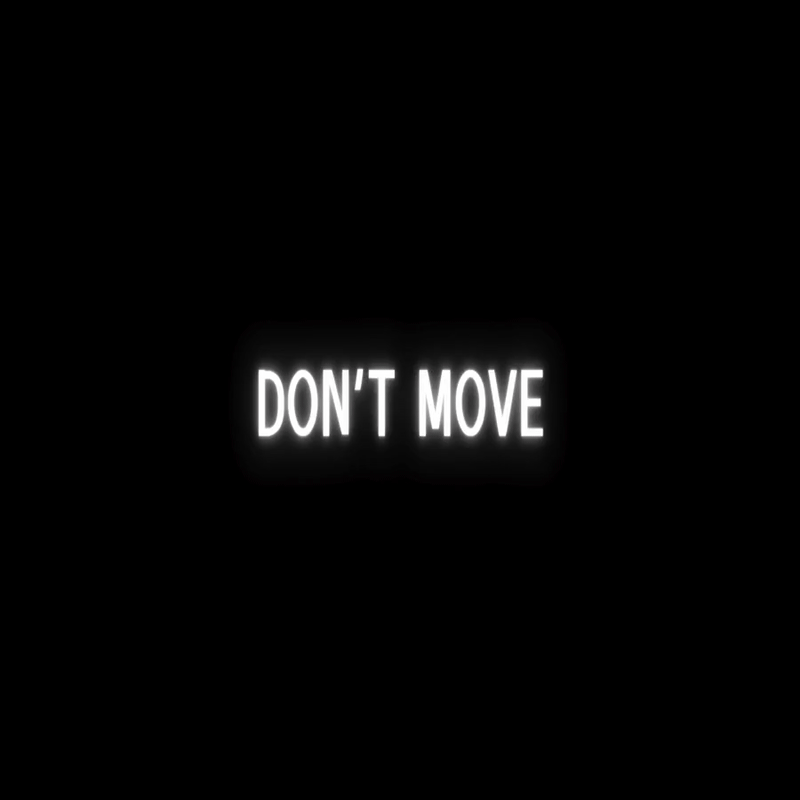
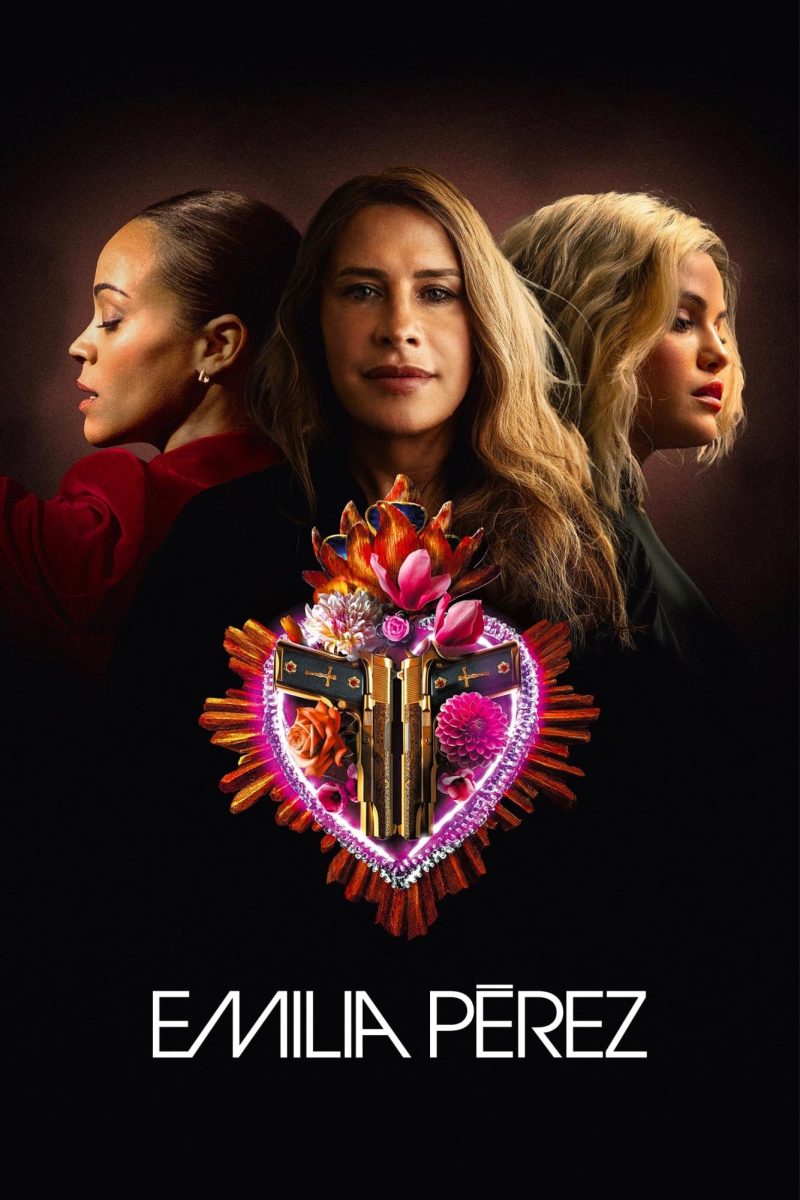
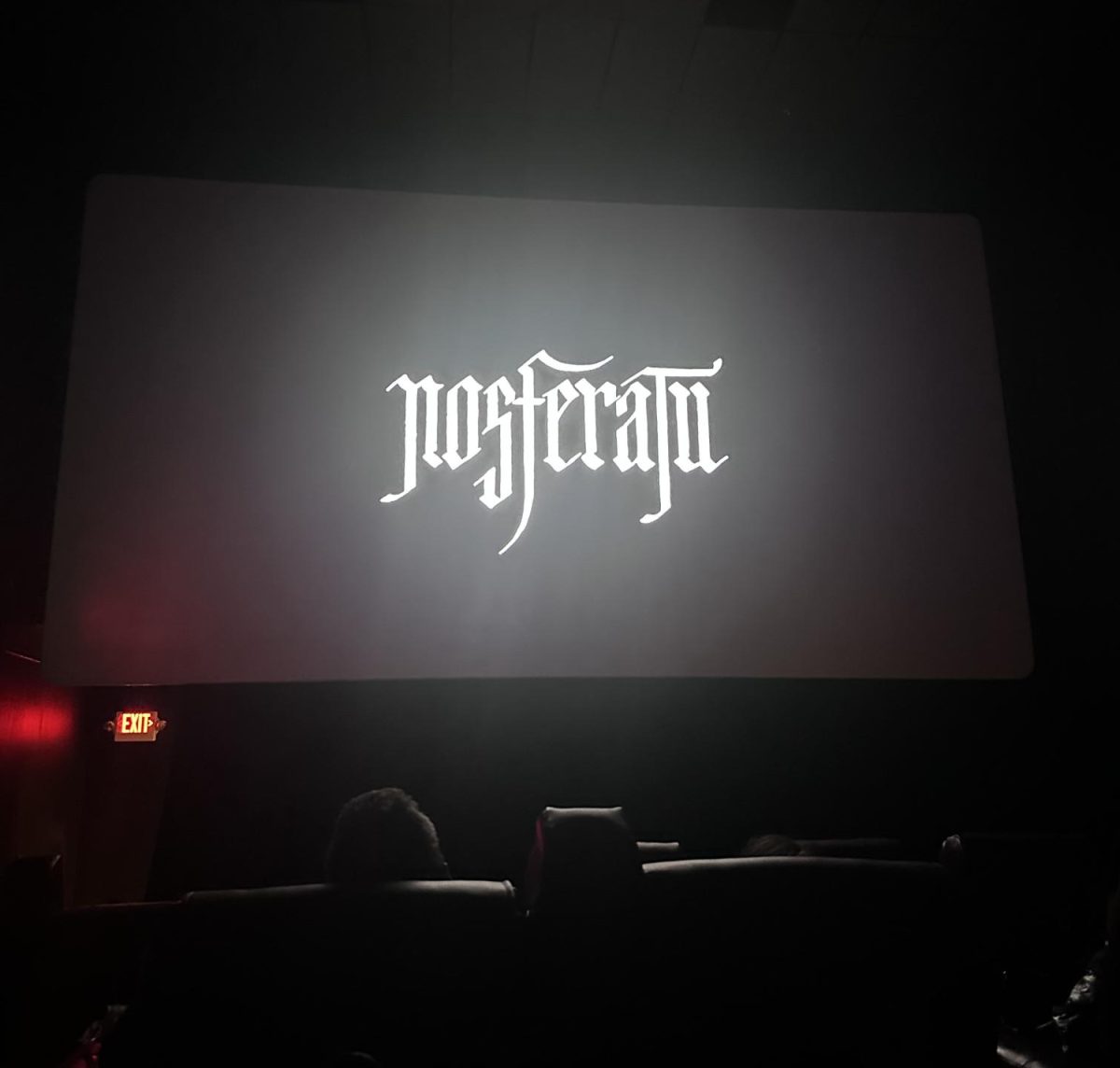
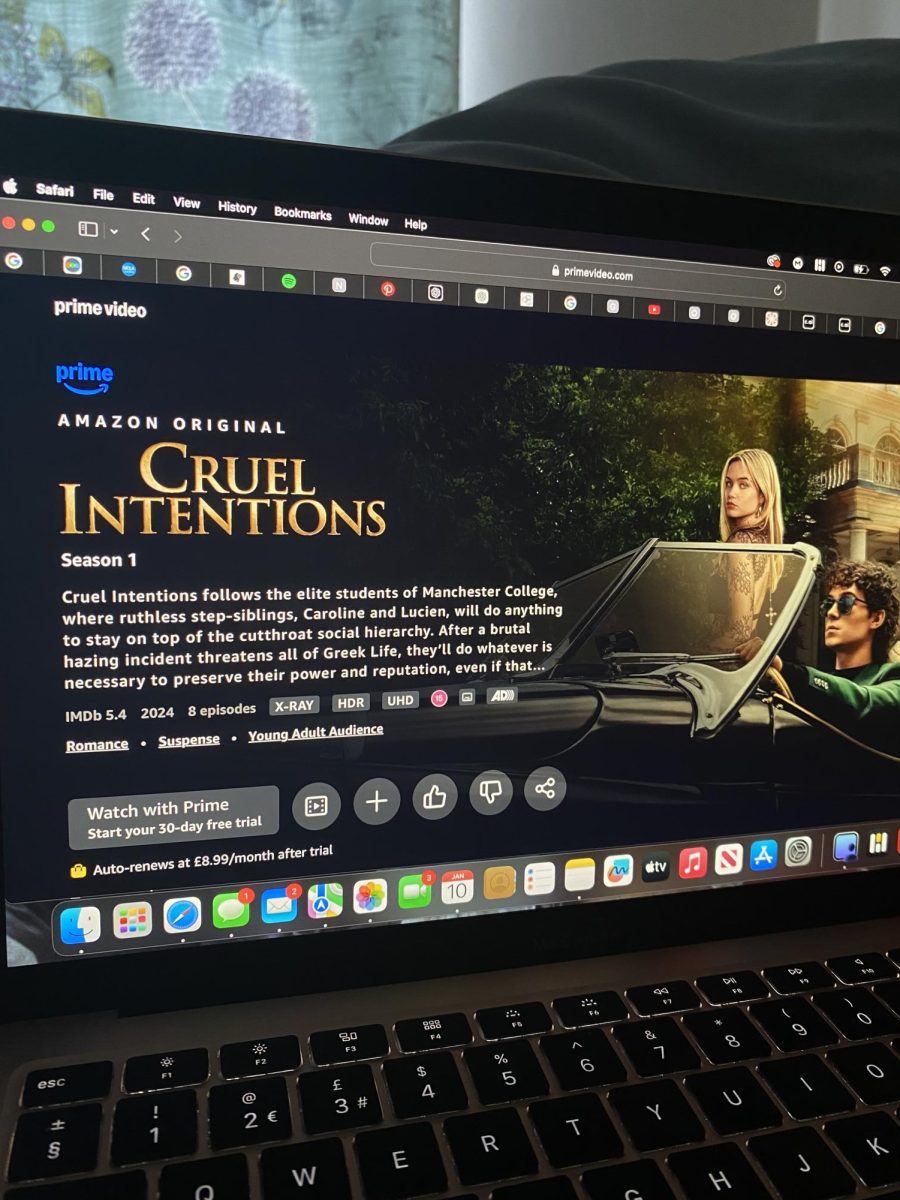
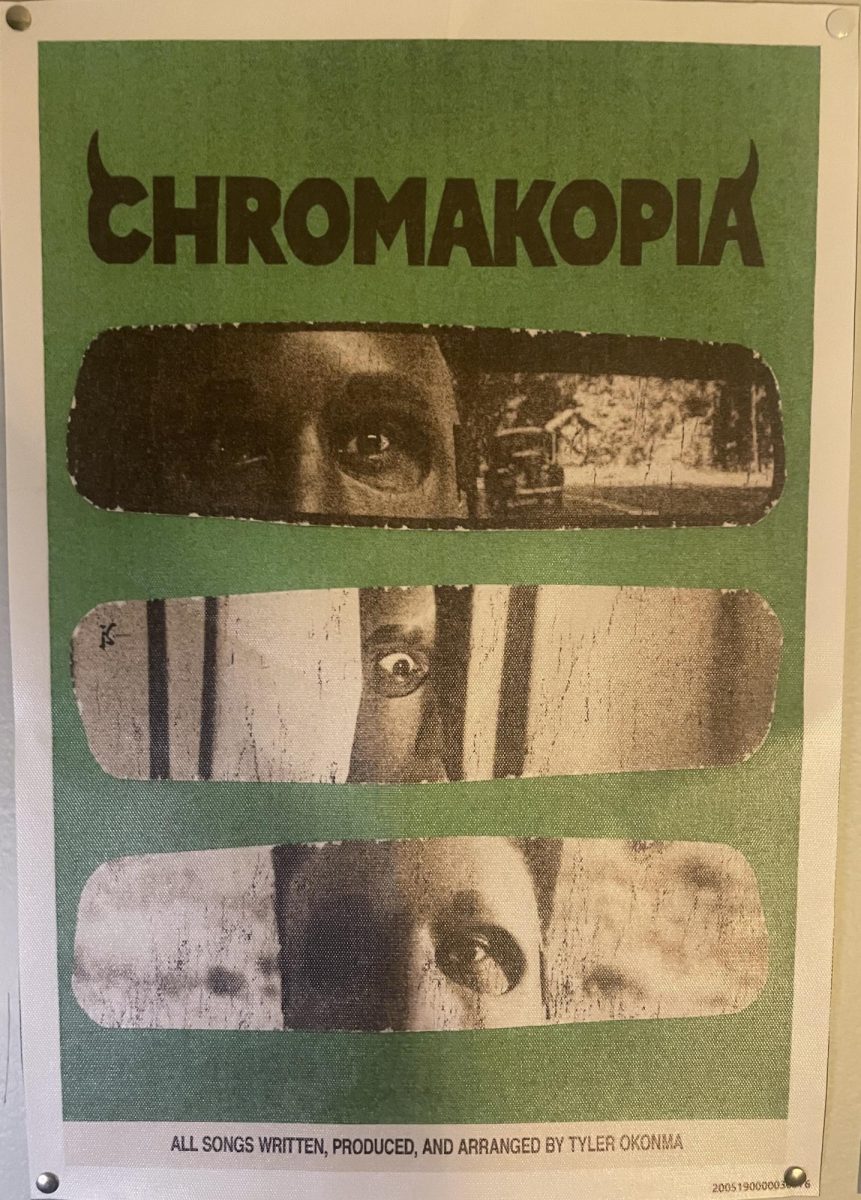
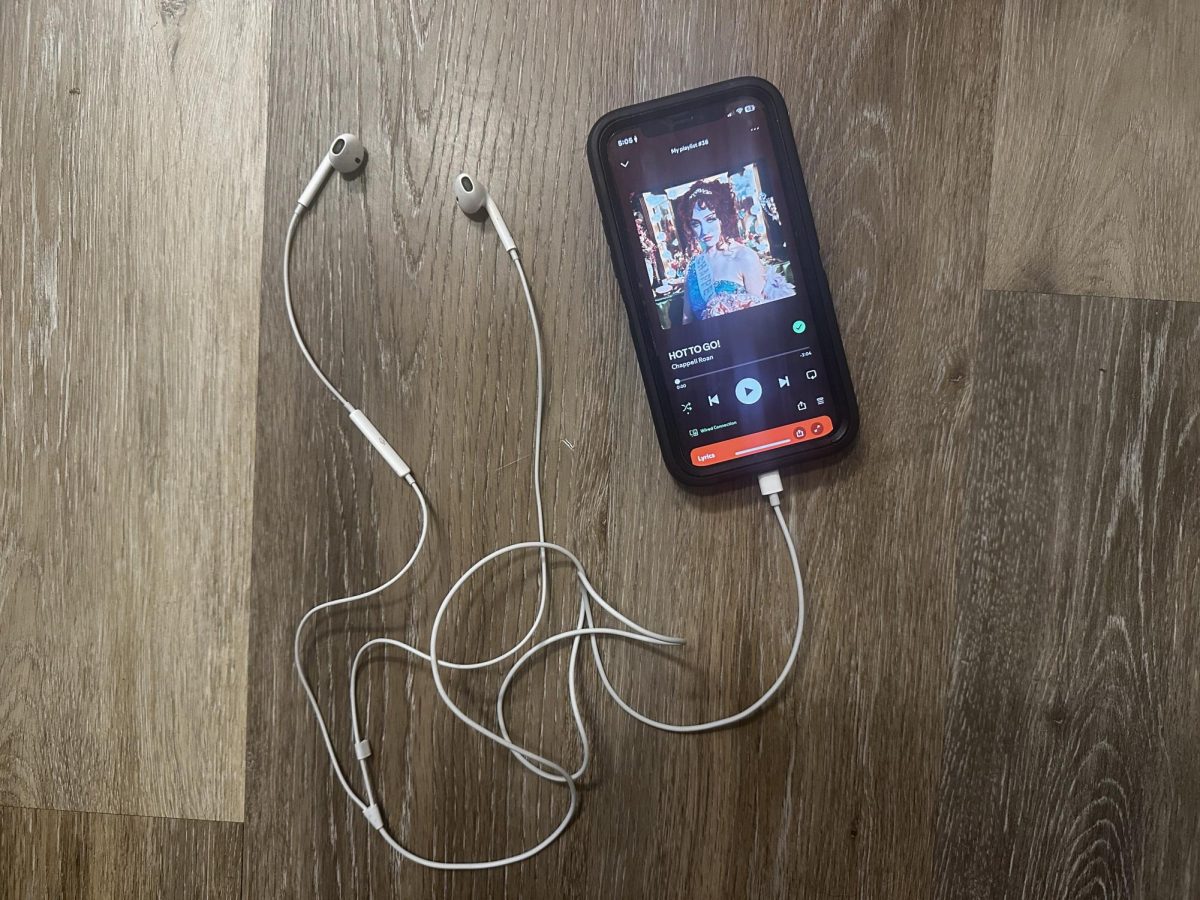

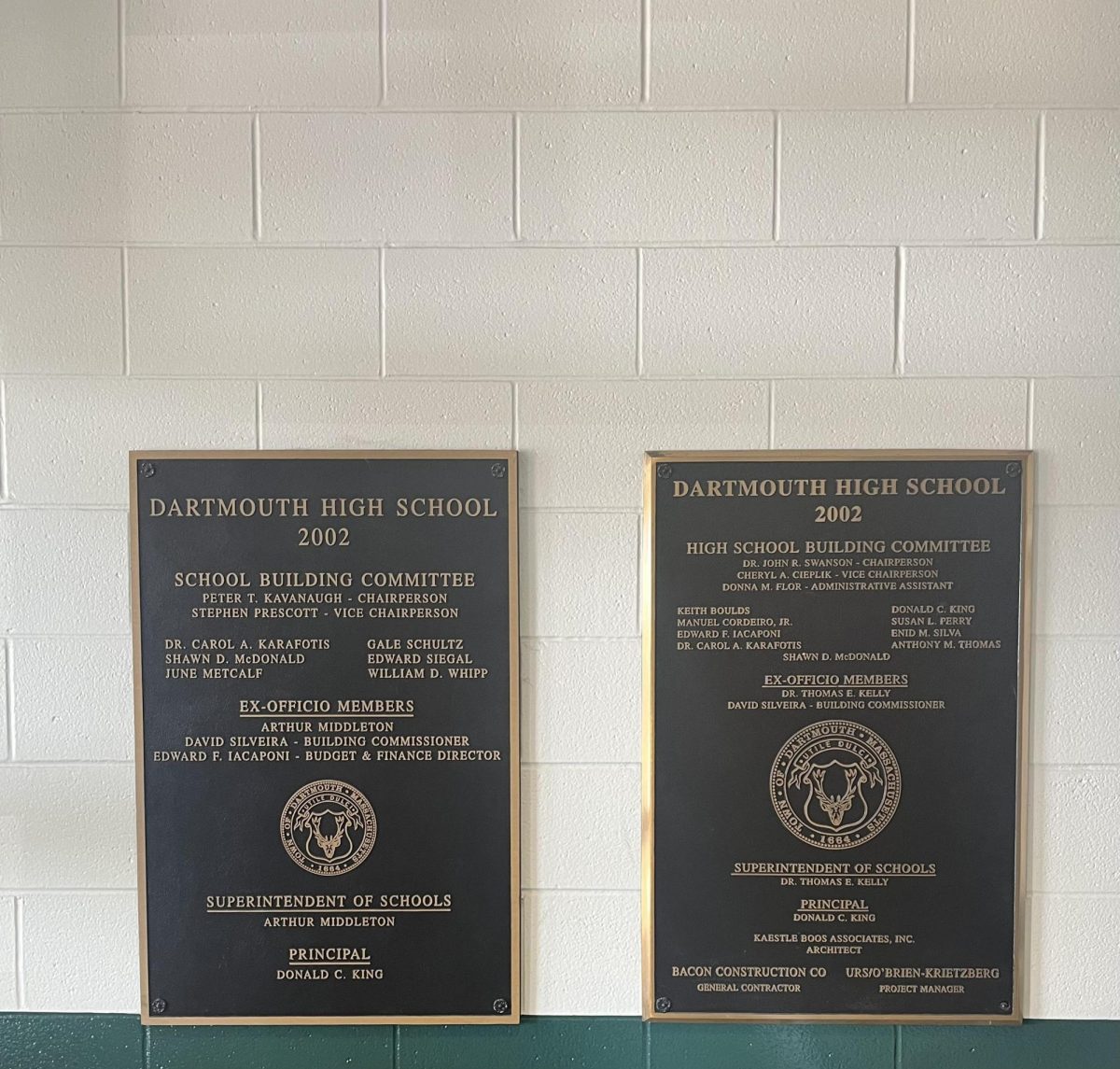
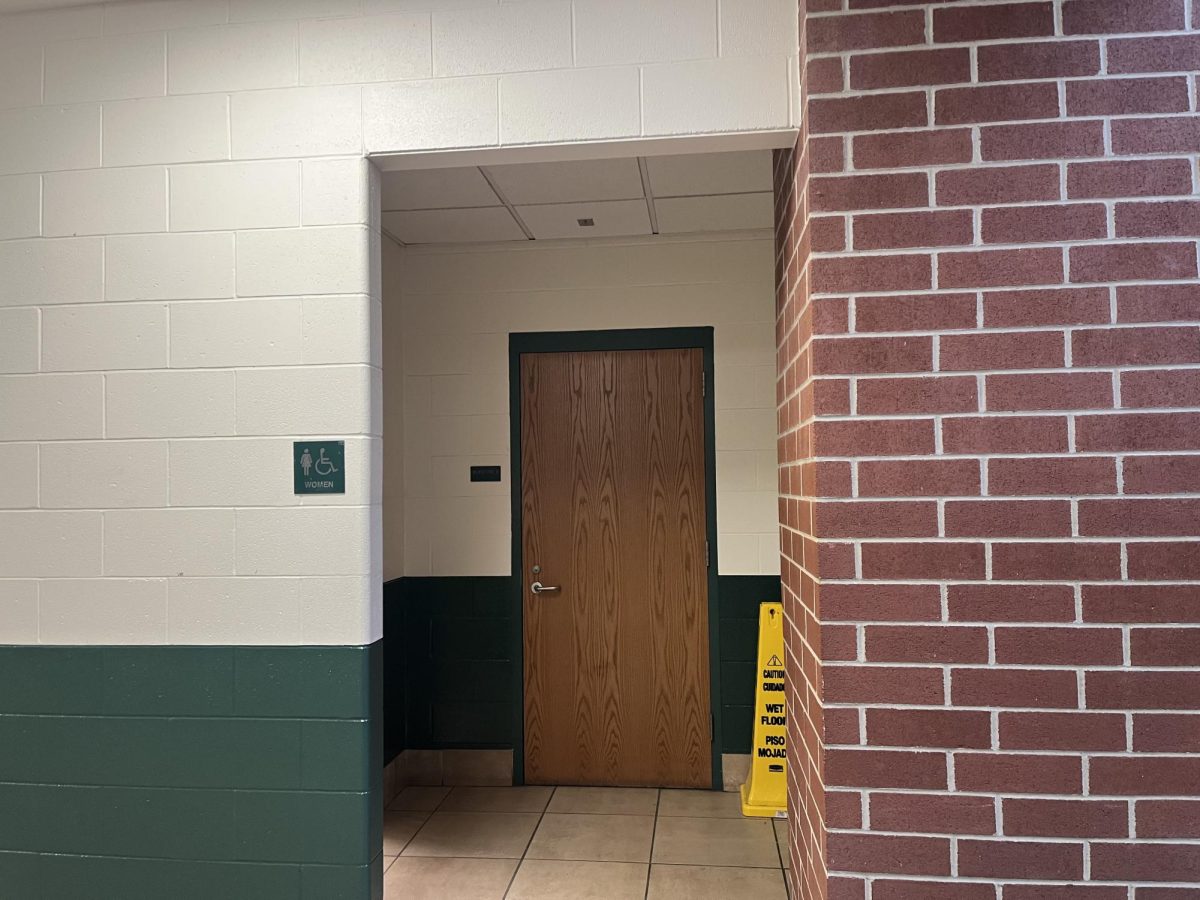
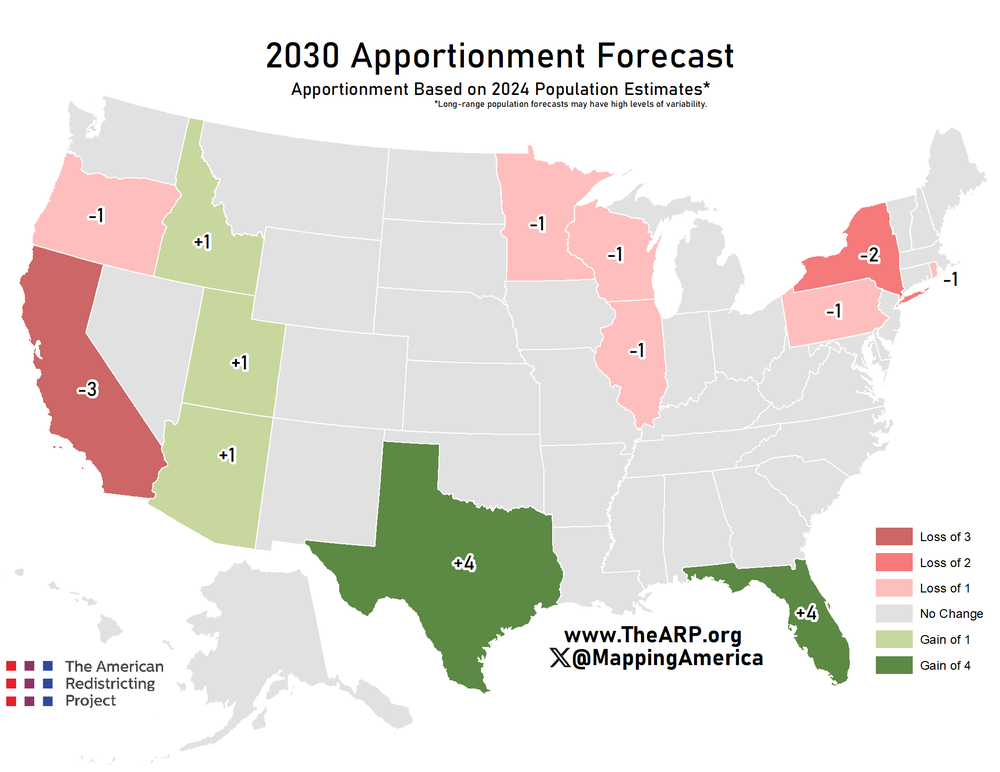

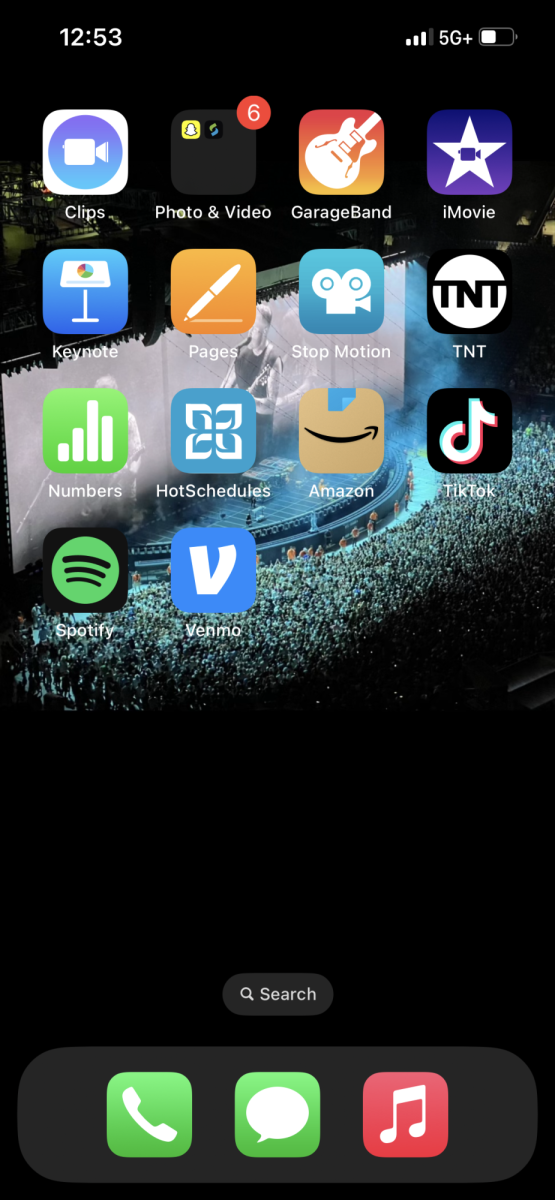

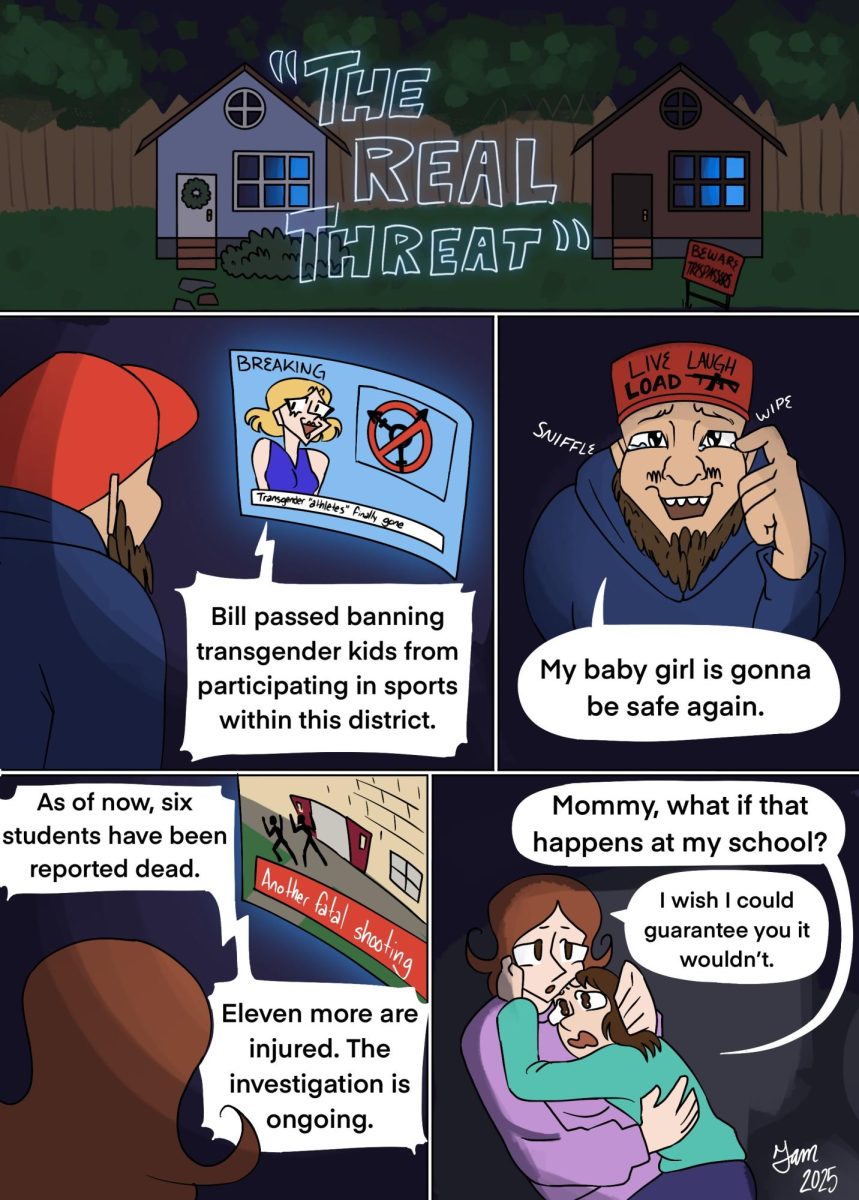


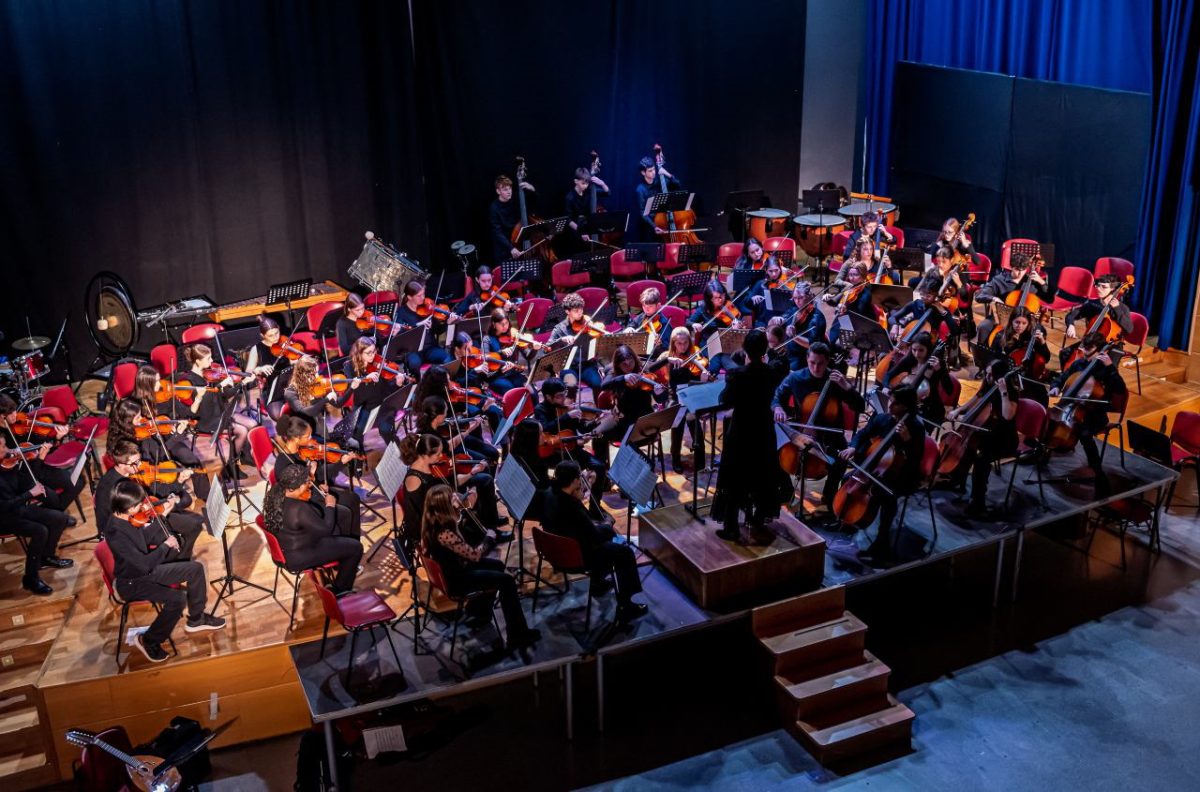
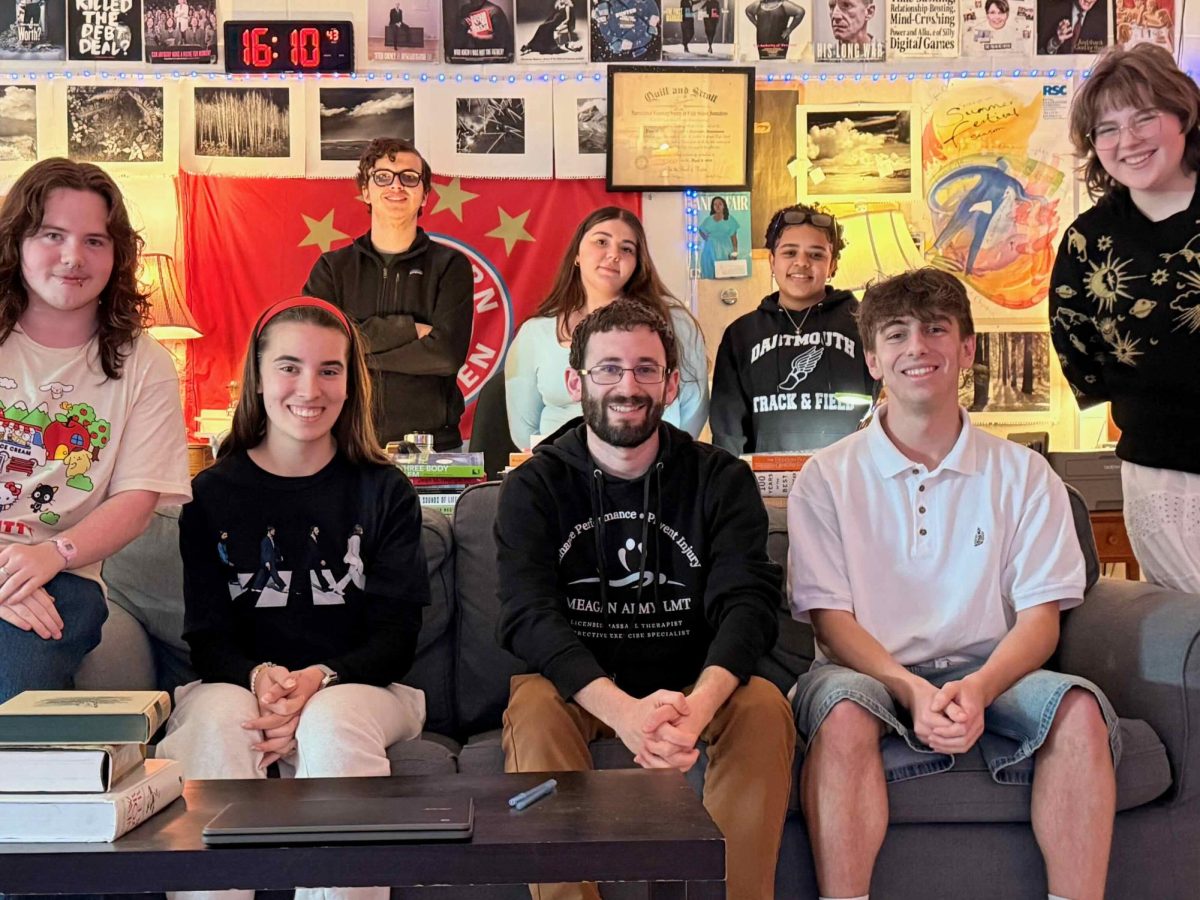


Molly • Mar 3, 2025 at 1:25 pm
Sadie Gifford • Feb 14, 2025 at 3:10 pm
Good ep.
Annica • Feb 14, 2025 at 3:21 pm
Great ep.
mikey • Feb 12, 2025 at 6:39 pm
the graphic looks great!